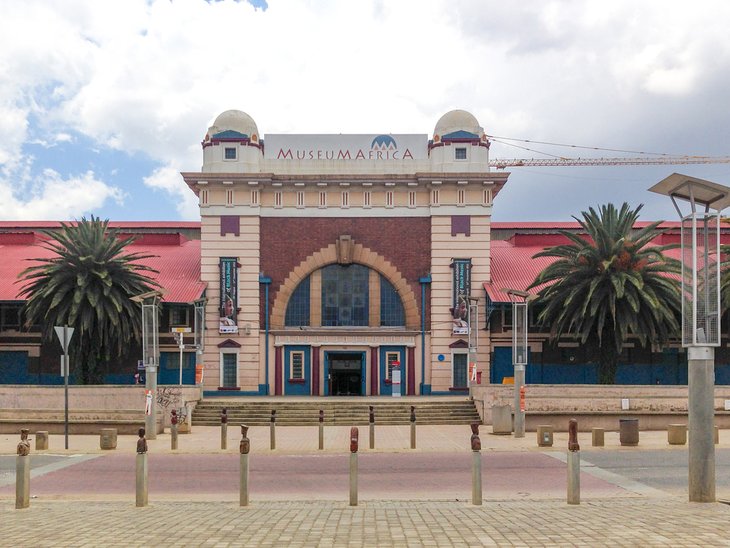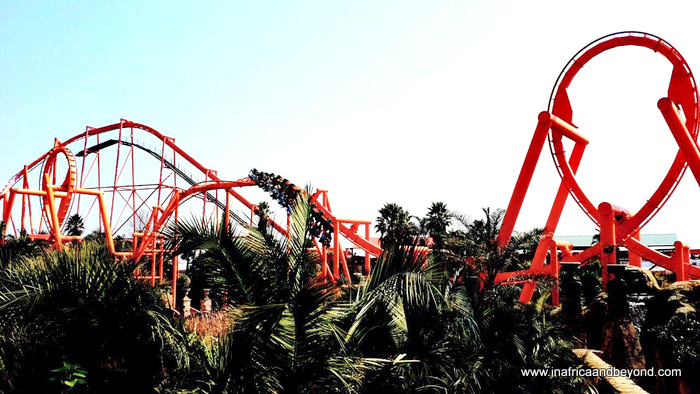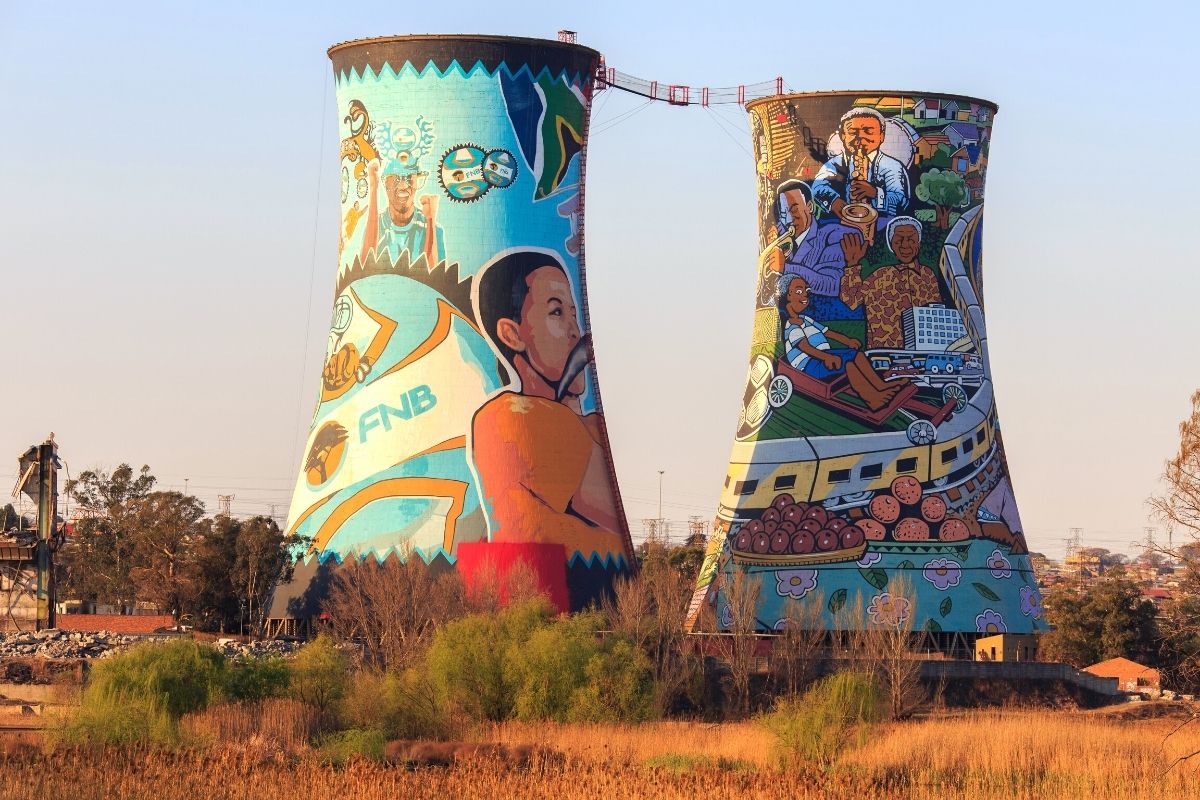Our Johannesburg North Attractions Diaries
Our Johannesburg North Attractions Diaries
Blog Article
Johannesburg North Attractions Things To Know Before You Get This
Table of ContentsJohannesburg North Attractions Fundamentals ExplainedJohannesburg North Attractions for DummiesUnknown Facts About Johannesburg North AttractionsNot known Facts About Johannesburg North AttractionsFacts About Johannesburg North Attractions RevealedThe Best Strategy To Use For Johannesburg North Attractions5 Easy Facts About Johannesburg North Attractions Described
Nonetheless you should maintain safety and security in mind and visitors need to remain sharp in all times when in unknown surroundings. Speak to the residents when you are in town to learn about the area you are remaining in. Johannesburg North attractions. When on the street (this does not use to shopping malls and other safe and secure environments) ideal basic guidance is to try your ideal to look like a local and to prevent presenting any type of wide range
Johannesburg North Attractions Fundamentals Explained
Professor Revil Mason O. J. (Thomson, 1946) explored the Witwatersrand's pre-colonial background. His archaeological work blew up the 'em pty land' misconception, according to which the area was lacking human habitation prior to the arrival of European settlers. In his publications Prehistory of the Transvaal: A Record of Human Activity (1962) and Origins of Black People of Johannesburg and the Southern Western Central Transvaal Advertisement 3501880 (1986 ), Teacher Mason showed the level of social and financial development in the location prior to Europeans established foot below.

Johannesburg North Attractions - Truths
He showed the federal government's approval, provided after he had vowed to maintain his discoveries trick. In 1874, small mining operations were started in the Magaliesberg, where an Australian, Henry Lewis, had uncovered gold down payments. In 1878, David Wardrop located gold in quartz veins at Zwartkop, north of Krugersdorp. In 1881, Stephanus Minnaar discovered gold on the farm Kromdraai, near the Cradle of Humankind.
In March 1886, a protrusion (quickly to be called the Key Coral reef) was located, quite luckily, on Gerhardus Oosthuizen's ranch Langlaagte. Some claim that the Lancastrian coal miner George Pedestrian discovered this reef. One more itinerant English miner, George Harrison (that had actually formerly operated in Australian mines) acquired a prospecting licence in regard of Langlaagte in Might 1886.
He chose to carry on in a pursuit for greener fields, and disposed of his Langlaagte case for the baronial amount of 10. Alas: under lay the wealthiest goldfield ever before located. The exploration of this rich auriferous coral reef provoked a gold rush that signalled the end of agrarian tranquillity in the southerly Transvaal.
It would, within six years, become the largest town in southerly Africa. Within a years, it would make the Z. A. R. up until then an anarchical and bankrupt little state the richest country in Africa. By the millenium, the Z. A. R. was to exceed Russia, Australia and the United States of America to become the globe's leading gold manufacturer, producing more than a quarter of the world's gold.
6 Easy Facts About Johannesburg North Attractions Described
It was known as Ferreira's Camp, called after Colonel Ignatius Ferreira. He was a Boer traveler upon whom the British authorities had presented the condition of Buddy of the Many Distinguished Order of St Michael and St George (qualifying him to the post-nominal letters C. M. G.) in gratefulness for his function in the battle that had deposed the Pedi king Sekhukhune in 1879.
Two various other camps were developed: Meyer's Camp on the farm Doornfontein, and Paarl Camp. The latter was nicknamed Afrikander Camp; several people from the Cape Swarm worked out there.

The Buzz on Johannesburg North Attractions
This name got currency by word of mouth, such that the State Secretary attested the name to the Mining Commissioner on 9 October 1886. Stands in the town were auctioned on 8 December 1886. While some stands were cost 10, others were torn down for as low as sixpence.
Two years later on, these erven were to change hands for as long as 750 each. The official statement tented camps diminished as a dorp of corrugated iron structures established and expanded north of the mines situated along the Key Reef Roadway. Areas such as Jeppe's Community (where working-class immigrants erected their houses) and Doornfontein (where the affluent brand-new 'Randlords' started to create their opulent homes) were quickly contributed to the ever-expanding map of the community.
Not known Details About Johannesburg North Attractions
Apart from the road names, there were no signs of Johannesburg being positioned in a Dutch-speaking country., almost everybody spoke English and even the Federal government slaves resolved one in English, unless they were initial resolved in the Taal (or Reduced Dutch)'.
Britain had an interest in guaranteeing optimal conditions for gold manufacturing on the Witwatersrand, and that the gold was exported to London instead than Berlin an important made all the extra clamant by the Z. A. R.'s increasing toenadering with Germany. Mine owners got on a clash with Head of state Kruger, whose plan of monopolistic concessions (often approved to his cronies) avoided mining business from acquiring products of materials (specifically dynamite) and work by themselves, less costly terms
Johannesburg North Attractions Things To Know Before You Get This
In 1890, the Volksraad had actually restricted the franchise business to white males who had stayed in the Z. A. R. for fourteen years or longer, therefore disqualifying most of the immigrants (that occurred to be the major contributors to the fiscus). However, frustration for the ballot was a simple pretext for promoting a different agenda; a lot of uitlanders regarded themselves as short-term site visitors and had no intention of staying in the Z.
Report this page